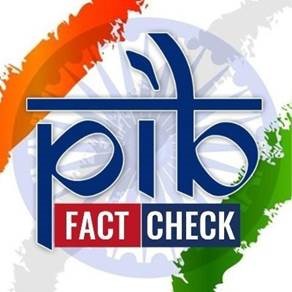Why in News?
THE BOMBAY High Court on Friday struck down as unconstitutional a key provision of the amended Information Technology (IT) Rules, 2021 which empowered the government to identify “fake news” on social media platforms through a “Fact Check Unit” (FCU).
- Friday’s ruling will have a larger impact on FCUs that even some states such as Karnataka and Tamil Nadu have established.
About PIB Fact Check Unit

- In November 2019, PIB established a Fact Check Unit (FCU) with the purpose of tackling the issue of fake news pertaining to the Government of India, its various ministries, Departments, Public Sector Undertakings, and other Central Government organizations.
- The unit verifies claims about government policies, regulations, announcements and measures. Through an established rigorous fact-checking procedure, the PIB Fact Check Unit helps in dispelling myths, rumours and false claims, and provides accurate and reliable information to the public.
What is the law in question?
- In April 2022, the Ministry of Electronics and Information Technology (MEiTY) promulgated the IT (Intermediary Guidelines and Digital Media Ethics Code) Amendment Rules,2023(2023Rules), which amended the Information Technology Rules, 2021.
- The amendment to Rule 3 (1) (b) (v) of the IT Rules, 2021 expanded the general term “fake news” to include “government business”
- Under the Rules, if the FCU comes across or is informed about any posts that are “fake”,“false”, or contain “misleading” facts pertaining to the business of the government, it would flag it to the social media intermediaries concerned.
- The online intermediaries would then have to take down such content if they wanted to retain their “safe harbour”, that is, legal immunity with regard to third-party content published by them.
- The FCUs allowed the government to be the “only arbiter” of truth in respect of business concerning itself.

What were the arguments before the HC?
- Petitioner’s views: Petitioner challenged the constitutional validity of the Rules, terming them arbitrary, unconstitutional, and in violation of fundamental rights.
- Centre’s opinion: The Centre said the Rules were not against any opinion, criticism, satire, or humour targeting the government, and were meant to only proscribe or prohibit the peddling of fake, false, and misleading facts on social media related to “government business”.
On what grounds HC strike down the Rules?
- HC held that the amended Rule 3 (1)(b)(v) was violative of Articles 14 (equality before law), 19(1)(a)(freedom of speech and expression) and 19(1)(g)(right to practice a profession or trade) of the Constitution.
- The impugned Rule curtailed the fundamental rights of citizens beyond the reasonable restrictions prescribed under Article19 (2), which was “impermissible through the mode of delegated legislation”.
- The judge held that the expressions “fake, false or misleading” in the Rule are “vague and overbroad”, and under the right to freedom of speech and expression, there is no further “right to the truth”.
- It was “not a responsibility of the state to ensure that the citizens are entitled only to ‘information’ that was not fake, false or misleading as identified by FCU”,
- The impugned Rule resulted in a “chilling effect” on the intermediary due to the “threat of losing safe harbour”, and also on the freedom of speech— and was therefore liable to be struck down.
What happens in this matter now?
- Justice Chandurkar’s opinion has settled the matter in favour of the petitioners by a 2-1 majority.
- Among the key provisions are mandates for social media platforms to setup a grievance redressal and compliance mechanism, which include appointing a resident grievance officer, chief compliance officer, and a nodal contact person.

 MPSC राज्य सेवा – 2025
MPSC राज्य सेवा – 2025
